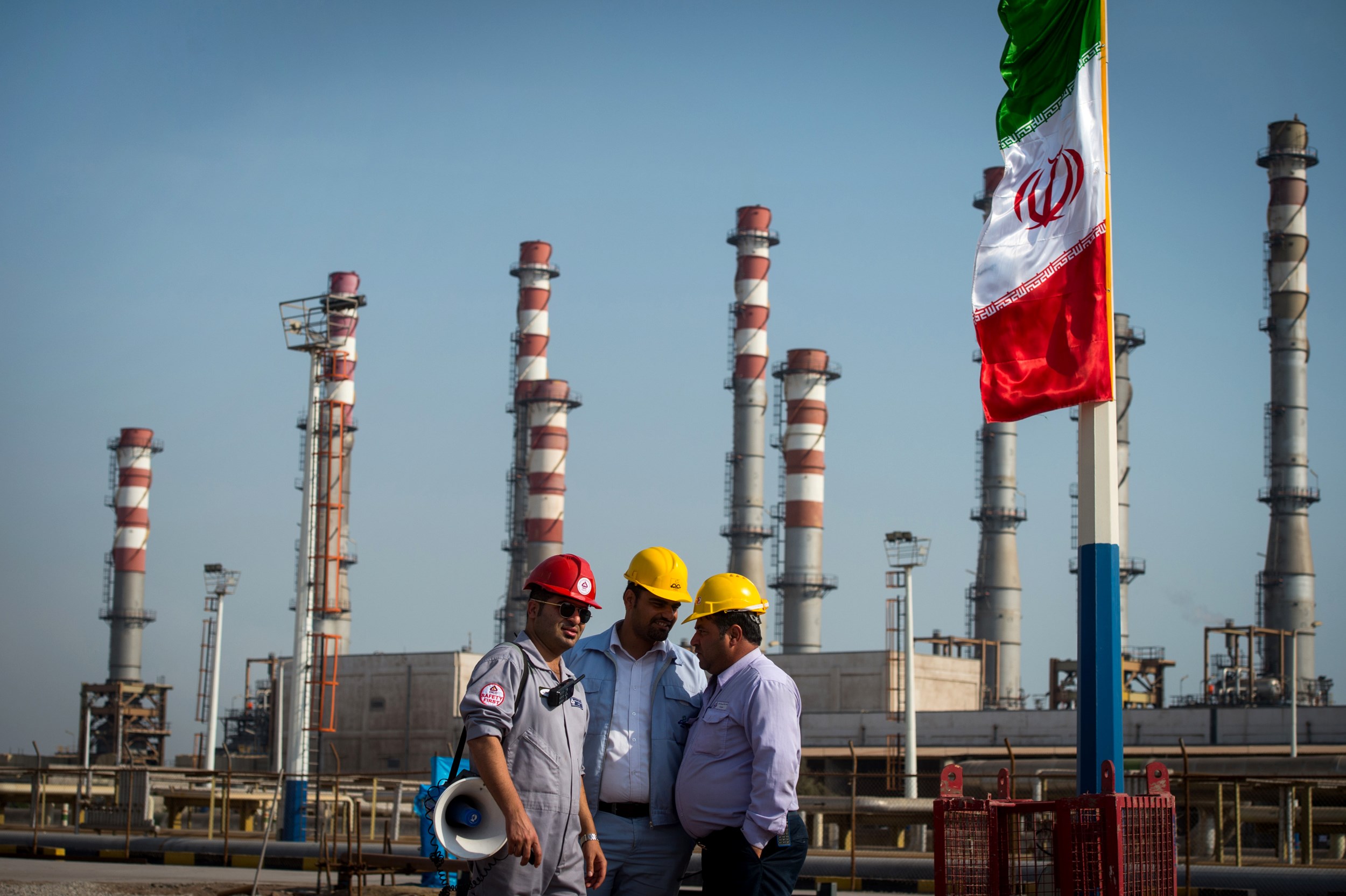US sanctions Iranian, Chinese, UAE firms
The US Department of Treasury imposes sanctions on UAE and Chinese companies over their actions helping in the sale of Iranian oil products.
-

Employees at a facility at the Persian Gulf Star Co. gas refinery in Bandar Abbas, Iran (Bloomberg)
The United States has imposed harsh sanctions on Chinese and Emirati companies, along with a network of Iranian petrochemical producers, accusing the firms of "help[ing Iran] evade sanctions" by supporting the sale of Iranian petrochemical products in international markets.
The corporations targeted include three Chinese-based firms, three Iranian-based firms, and four UAE-based firms, a statement issued by the US Treasury Department on Thursday said, citing their "support" for Triliance Petrochemical and Iran's Petrochemical Commercial Company.
"This network helps effectuate international transactions and evade sanctions, supporting the sale of Iranian petrochemical products to customers in the PRC and the rest of East Asia," the statement read.
All interests in property of the firms falling under US jurisdiction have been blocked, and those who deal with them in any way could be sanctioned or penalized under some circumstances.
Washington also sanctioned Chinese citizen Jinfeng Gao and Indian national Mohammed Shaheed Ruknoddin Bhore.
"The United States is pursuing the path of meaningful diplomacy to achieve a mutual return to compliance with the Joint Comprehensive Plan of Action," Under Secretary of the Treasury for Terrorism and Financial Intelligence Brian E Nelson claimed, referring to the Iran nuclear deal.
With no deal in place, he underlined, Washington will continue imposing sanctions that limit exports of petroleum, petroleum products, and petrochemical products from Iran.
The "maximum pressure" campaign the United States uses against Iran was launched under former President Donald Trump, who had unilaterally withdrawn from the Joint Comprehensive Plan of Action (JCPOA) aimed at offering Iran sanction relief in exchange for the country slowing down its nuclear activity. The anti-Iran policy, however, has been enforced by Trump’s successor Joe Biden.
The deal was signed in 2015 between Iran, the United States, Germany, the United Kingdom, France, China, and Russia, with Washington being the only party to withdraw from the deal.
In retaliation, the Islamic Republic has been escalating its nuclear program.
The latest round of sanctions was met with condemnation from Iran, with the Iranian deputy foreign minister for economic diplomacy dismissing them as ineffective.
"Our petrochemical industry and its products have long been under sanctions, but our sales have continued through various channels and shall continue to do so," Mehdi Safari told Iranian state TV.

 3 Min Read
3 Min Read










